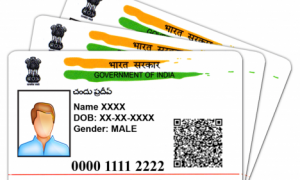The Union government has secured nod to see its holding in the four PSU general insurance firms drop below 51%. Rising competition and mounting losses is a big drain. However the employees are saying that functional autonomy is the need of the hour. The sector is readying for big change.
THE Union government may not necessarily find it easy to push through its decision to amend the General Insurance Business (Nationalisation) Amendment Bill, 2021.
While its move provides the Union government flexibility or leeway to reduce its stake in the four general insurers-New India Assurance, National Insurance, Oriental Insurance and United India, it has to continuously monitor the market.
competitive landscape indeed
The entry of the private sector into the insurance industry has led to increased competition. At present, India is home to 21 private general insurance firms, besides seven standalone health insurers.
The annual report of the Insurance Regulatory & Development Authority (2019-20) documents how the state-owned general insurers have been losing market share in the face of rising competition.
The market share of the state-owned general insurers slipped below 40% to touch 38.78% in 2019-20 against 40.52% in 2018-19.
Curiously enough, the only single PSU general insurer whose market share rose in 2018-19 was New India which rose to 14.19% from 14.11%.
What exactly is on the anvil?
While discussing about the proposed amendment the Union finance minister, Nirmala Sitharaman said, “The public were the main beneficiaries of private insurance companies as they had been offering good policies with lower premium to them and they had better market penetration.”
In other words, this paints the state-owned general insurance companies as being inefficient, loss-making entities with no culture of customer service.
Pricing is the mirage
But make no mistake. The private sector is driven by profit motive. Expecting them to hold price or keep premium on various insurance policies low is a mirage.
If India needs to ensure that insurance cover is available to all, then there shouldn’t be a situation where price undercutting becomes the norm.
For that to happen, the regulator must be willing to crack the whip when the going becomes tough and players mindlessly chase profits instead of focusing on helping society at large.
On the other hand, the officials with the state-owned general insurers say that they need to be provided functional autonomy.
But there is no denying the fact that many of the officials in the private sector were formerly employed with the state-owned general insurers and they are quite capable of pulling a rabbit out of the hat!
The COVID-induced pain
There is no denying that the general insurance industry, particularly the state-owned insurers are facing the heat from the second wave of COVID-19 infections.
A report by rating agency, ICRA is projecting the four state-owned general insurers could be staring at losses in the range of ₹12,400 crore to ₹13,500 crore in the ongoing fiscal. In fiscal year 2020-21 for instance, the state-owned general insurers settled nearly 10 lakh claims totalling ₹14,000 crore on the back of the first wave of the pandemic.





































